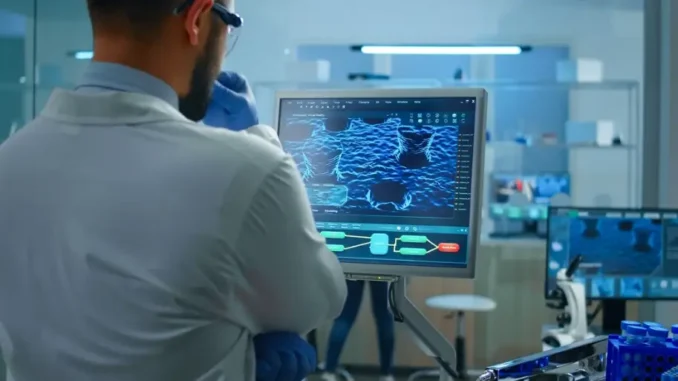
A prospective multicenter study recently published in The Lancet Digital Health looked at the application of Artificial Intelligence (AI) in the assistance to reading capsular endoscopy in cases of suspected bleeding of the small intestine.
The main objective of the study was to determine whether AI could match or exceed the accuracy of standard reading in identifying potentially bleeding lesions (classified P1 and P2) in the small intestine.
What is capsular endoscopy?
Capsular endoscopy is a non-invasive technique used to examine the gastrointestinal tract, especially the small intestine. However, the analysis of the images obtained can be a long process and requires constant attention so as not to lose any significant finds. AI, and in particular deep convolutional neural networks, can recognize such findings, potentially exceeding human performance and reducing the time it takes for the analysis of capsular endoscopy images.
The study
During the study, 133 patients aged 18 years and older with suspected bleeding of the small intestine from 14 European centers were enrolled.
These patients underwent a capsular endoscopy of the small intestine using the Navicam SB (Ankon, China) system, which is equipped with an AI system based on a deep neural network (ProScan) for automatic detection of lesions.
The analysis revealed that AI correctly identified 73.7% of P1 and P2 lesions, compared to 62.4% identified by the standard reading. This result has shown not only the non-inferiority, but also the superiority of AI over the standard reading (p-0.023).
In addition, the average reading time of the small intestine was greatly reduced with AI. While the standard reading took an average of 33.7 minutes, the AI-assisted reading took only 3.8 minutes.
The study results indicate that AI could provide more accurate and faster detection of bleeding and clinically relevant lesions of the small intestine, compared to standard reading. These results suggest that AI has the potential to revolutionize the practice of capsular endoscopy, improving both efficiency and accuracy of diagnosis.
read also: The human atlas in 3D video that explains to the patient his state of health